Gilda (1946)
“You do hate me, don’t you, Johnny?”
|
Synopsis: |
|
Genres, Themes, Actors, and Directors:
Response to Peary’s Review: he complains that the film as a whole is “overlong, silly, and confusing”. Watching it again recently, however, I found myself surprisingly absorbed in its tale of a vitriolic “love-hate” relationship between a couple so clearly meant for one another (if only they could get over whatever it is that keeps them clawing at one another’s throats). The aspects of the script focusing on Macready’s shady wartime dealings as the head of an international tungsten cartel (!) are a tad incomprehensible and meandering (Joseph Calleia’s detective lurks around the perimeter of the set without much to do), but are ultimately inconsequential, and fortunately don’t distract much at all from the central conflict: the tension-filled menage a trois between Macready, Ford, and Hayworth. I disagree as well with Peary’s assessment of Macready as “good and sinister” but “not strong enough for such a pivotal role” — it’s exactly his creepy but understated presence that gives his relationship with Ford’s Johnny such an unusual edge: (Why exactly did he “pick up” Johnny to begin with, off the streets of Bueno Aires?) I agree with Peary, however, that Ford “gives an uninteresting performance as an unlikable heel-hero” — actually, his performance here is not so much “uninteresting” as it is unconvincing (though the fault is less with Ford than with the studio heads for miscasting him in the first place). He simply doesn’t have the requisite allure or good looks to be credible as a man that a goddess — er, woman — like Gilda would get herself so hung up over. On that note, the script teasingly neglects to fill us in on the little detail of what exactly tore Gilda and Johnny apart to begin with. Quibbles aside, however, there’s enough to the film — including director Charles Vidor’s more-than-serviceable direction, Rudolph Mate’s noir-inflected cinematography: … Rita’s inimitable presence, and lots of zingy dialogue — to make it a must-see classic at least once for all film fanatics. Redeeming Qualities and Moments:
Must See? Categories
(Listed in 1001 Movies You Must See Before You Die) Links: |
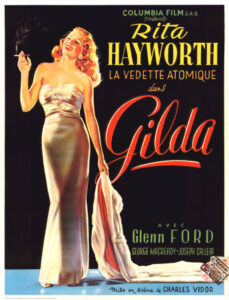
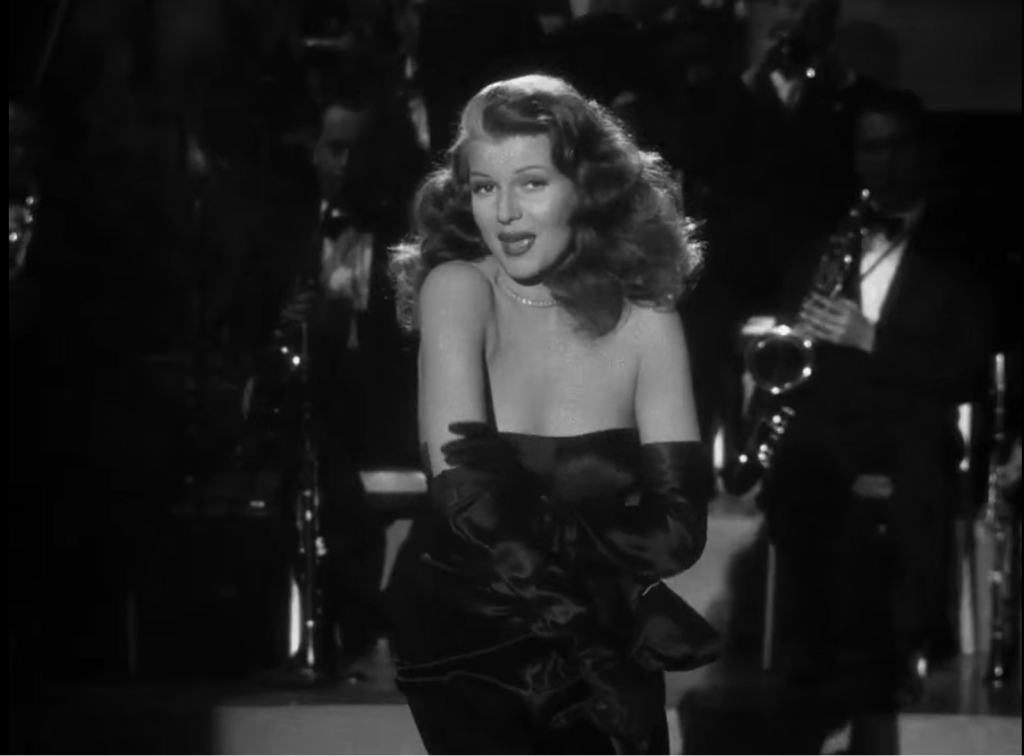
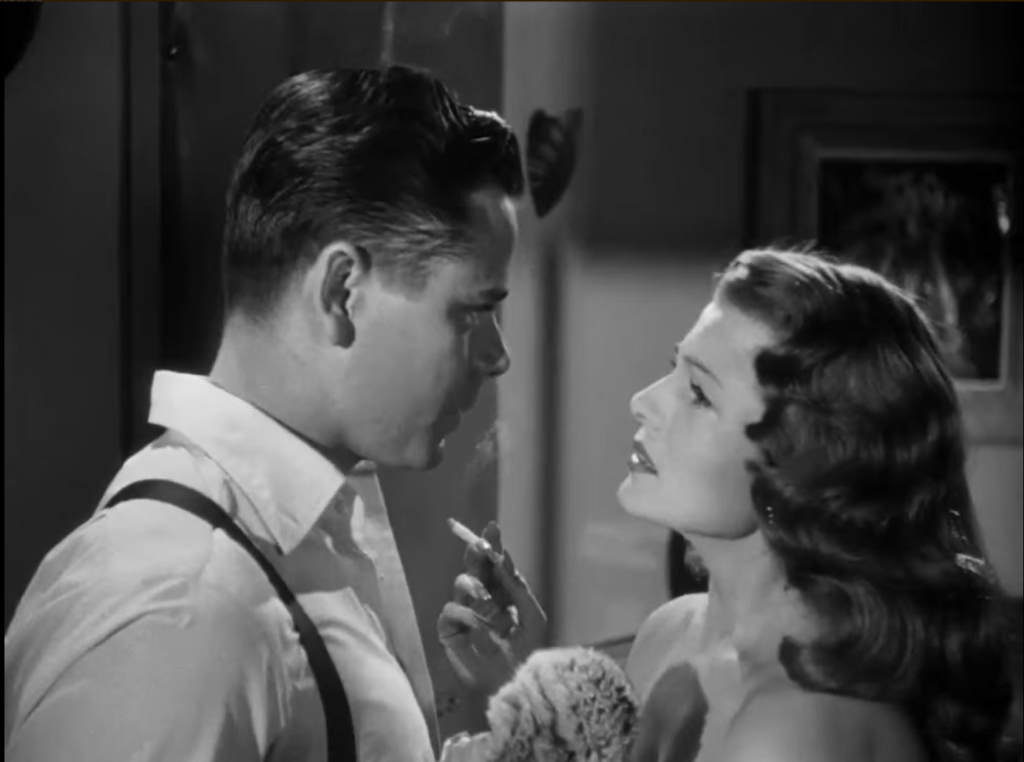
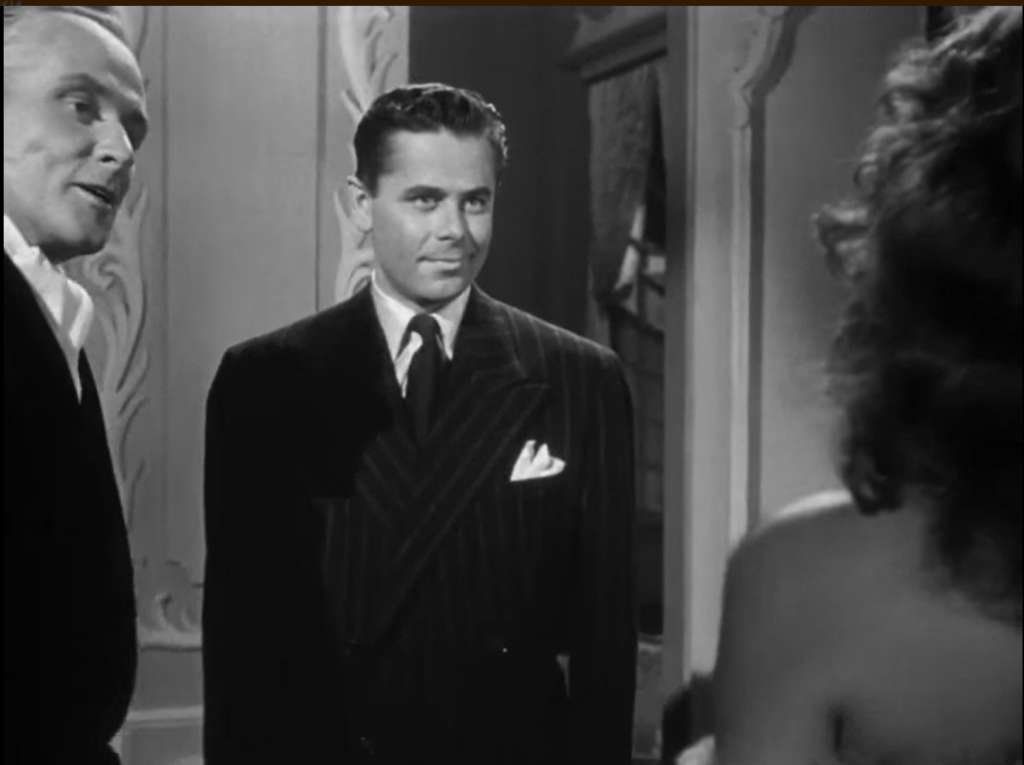
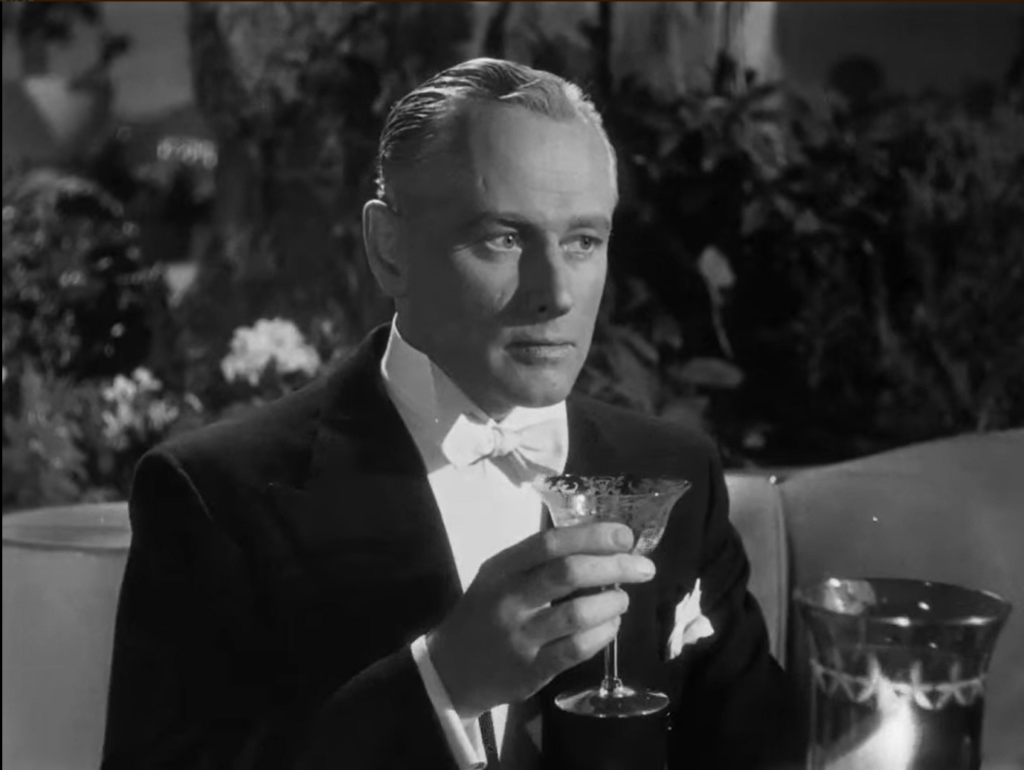
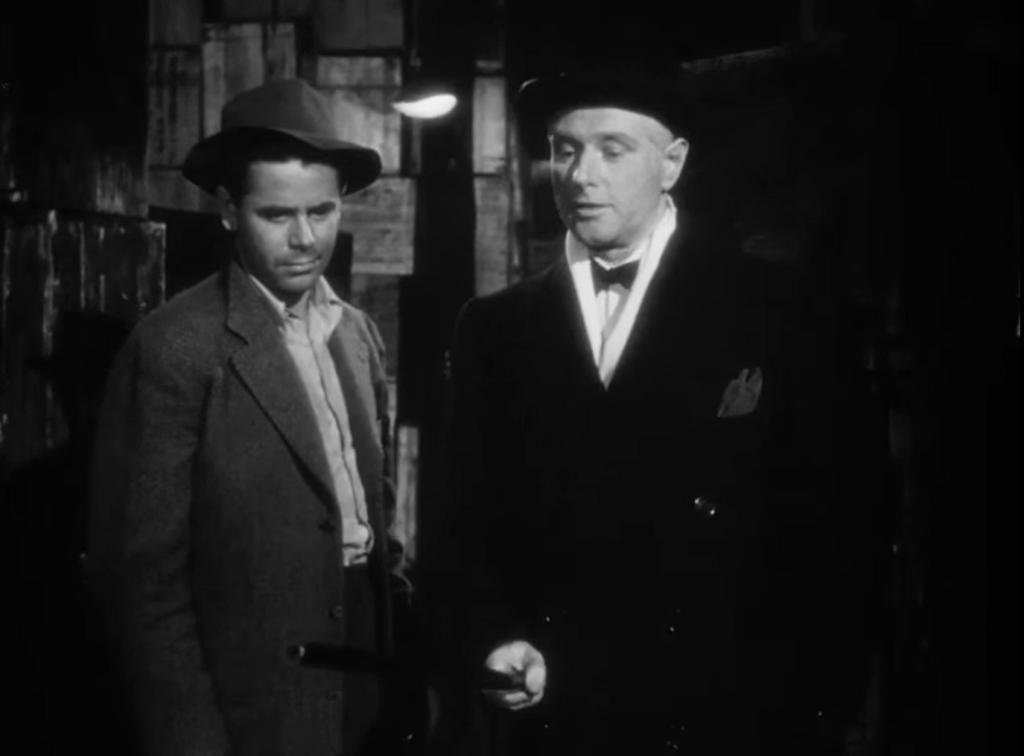
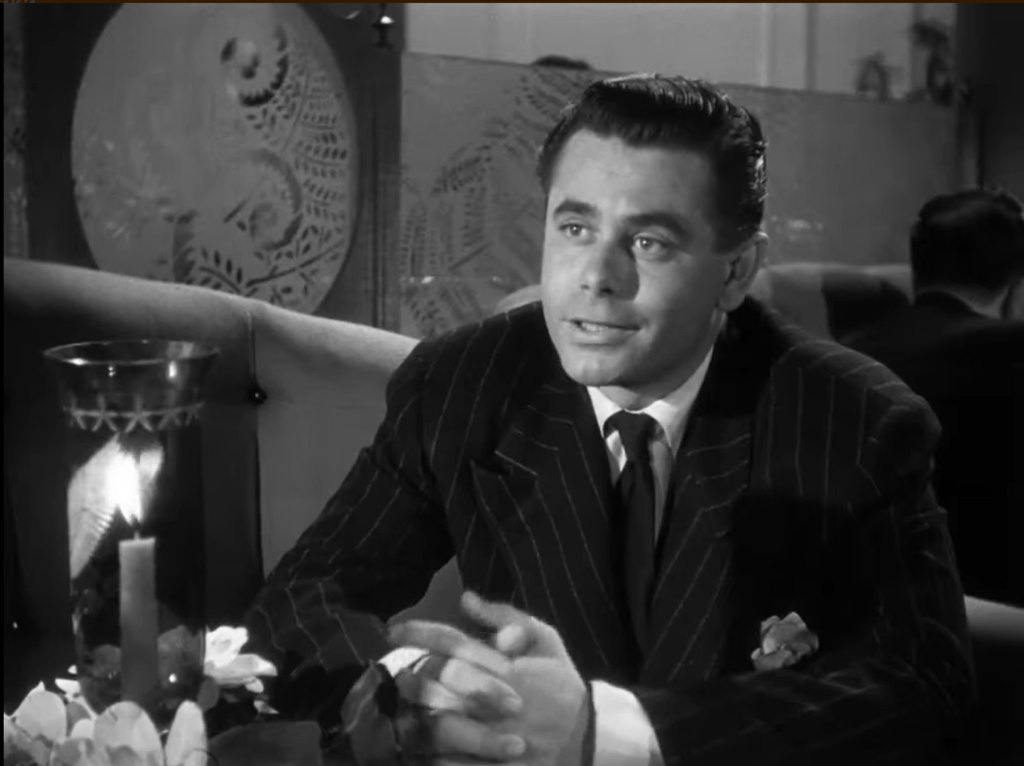
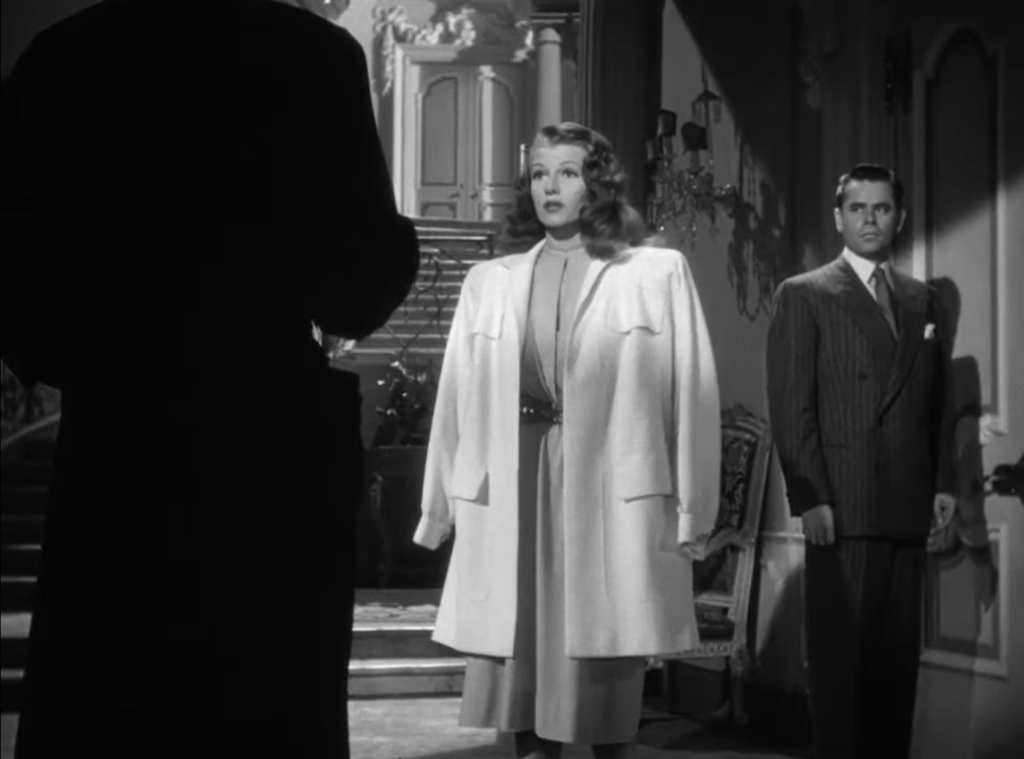
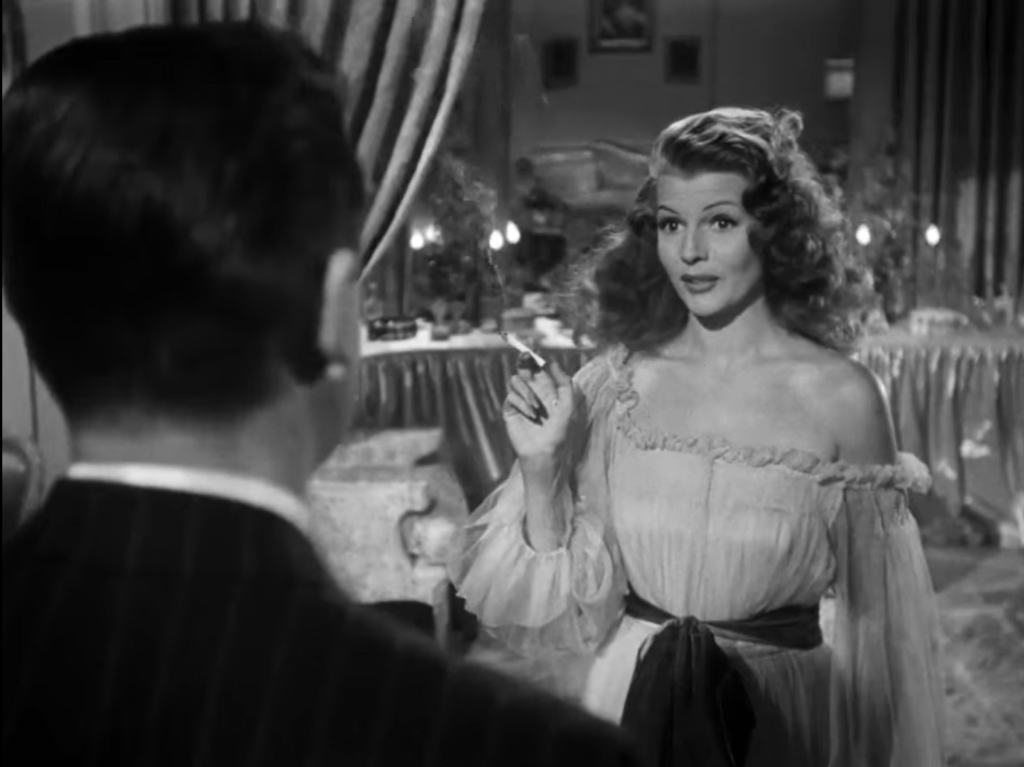
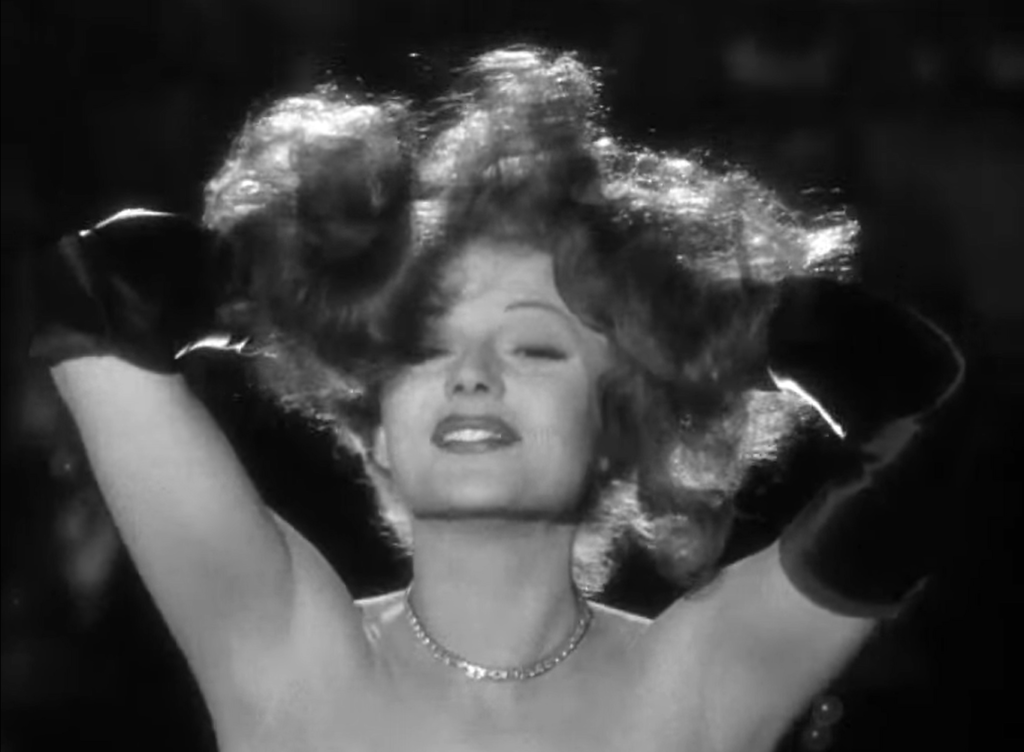
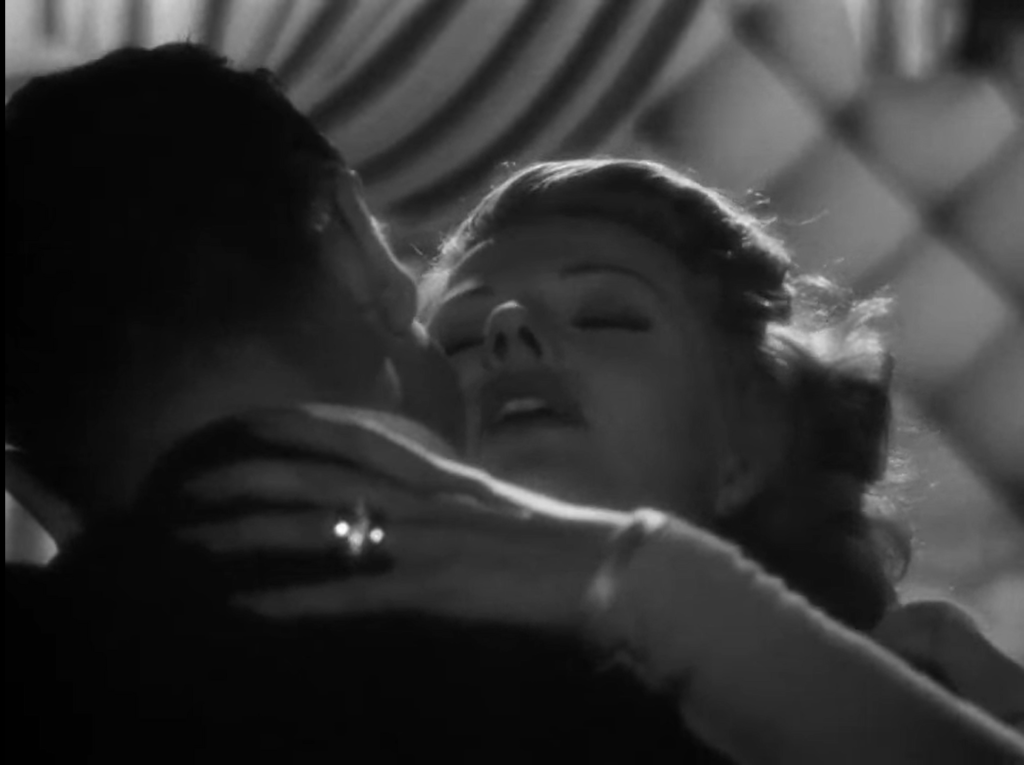
2 thoughts on “Gilda (1946)”
A MUST! One of the all-time great noir romances – and how many of those are there, really?
This film is ageless – it grabs me and holds tight each time I see it. I’ve no idea what Peary means when he calls it “overlong, silly and confusing”. It’s under 2 hours, not at all silly but engrossing, and pretty straightforward plot-wise, if you ask me.
I also think Ford is fine as Johnny (as Hayworth wonderfully says, “Such a hard name to remember – and so easy to forget.”). It’s all relative who we fall in love with anyway; Hayworth makes it perfectly clear she’s nuts about this guy – and I buy it. And…I don’t know, I find Ford to be rather dashing here, with the opportunity to have one of his best roles.
True, there’s almost no end to the questions this film raises – and that’s its power.
Take this early exchange between Ford and Macready –
Ford: You’ve no idea how faithful and obedient I can be – for a nice salary.
Macready: This I must be sure of: that there is no woman anywhere. …Gambling and women do not mix. [Since when?]
Ford: …I was born last night when you met me in that alley.
So it does beg the question… Why *was* Macready in that alley? By a wharf? Among sailors? There’s clearly a weird sexuality afoot in this film. Macready is hardly all that heterosexual. (Ford says to him, “You must lead a gay life.” And, even tho ‘gay’ had a different meaning in 1946…the meaning here doesn’t seem all that ‘different’.) In fact, what it looks like is that Macready would like to *be* Gilda (his trophy wife – or beard?), in a way, in order to get Ford. It’s pretty twisted, but there it is.
The questions continue: when Gilda says “Let [Ballin] find out about me.”, we wonder…find out what? Was she a prostitute? Is that what Ford knows? Is that why Hayworth says “There were no others, Johnny.”? – cause she gave her body but not her heart? Is that mainly what Ford has against her?; why he says, “Statistics show that there are more women in the world than anything…except insects.”?; why he constantly needles her re: respectability? (“Pardon me but your husband is showing.”)
The film brilliantly leaves so much up to the audience, thus drawing us in all the more.
And this is the movie that ‘cursed’ Hayworth. She would go on to say that “men went to bed with Gilda and woke up with me.” Her character is given a literally breathtaking entrance – after we wait patiently for her for about 20 minutes. Gilda is, in short, a sexual goldmine – and what’s even better is that she is not what she seems: for all her show (and it’s electric show), she wants true love with the man of her choice. Hayworth is simply phenomenal here.
(I admit to a special fondness for Steven Geray as Uncle Pio: “You whistled – I heard you!”, he says, with an amusing wave of his finger.)
A real classic, with terrific direction by Charles Vidor (esp. the way he captures the gambling casino milieu).
Intriguing IMDb note: ‘Gilda’ was produced by Virginia Van Upp, one of only three women working as contract producers for major Hollywood studios between 1943 and 1955.
A must that holds up to repeated viewings.
I am perfecting fine with the male leads – Ford is just fine and I find it hard to think of someone else in this role (since Crawford’s Gilda can’t be overshadowed), and Macready is well suited as the criminal who wants to be the sophisticated business man in charge.
And this film is glorious to watch – it shows how gorgeous black and white can be.